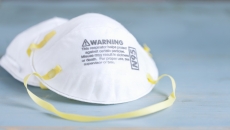WASHINGTON - Arbitrators have issued their final report into U.S. complaints about how Canada is interpreting North American trade rules around dairy imports — and both countries are claiming victory.
U.S. Trade Representative Katherine Tai formally requested a dispute settlement panel last May to examine allegations from American producers that Canada is denying them fair access to the Canadian market.
That panel, established under the U.S.-Mexico-Canada Agreement's dispute-resolution system, says clearly that Canada's practices are "inconsistent" with the commitments spelled out in the trade deal.
Tai's office says it has "prevailed" in the dispute, which accused Canada of unfairly favouring Canadian processors, effectively denying U.S. farmers their fair share of the supply-managed Canadian market.
This historic win will help eliminate unjustified trade restrictions on American dairy products, and will ensure that the U.S. dairy industry and its workers get the full benefit of the USMCA to market and sell U.S. products to Canadian consumers.
— Ambassador Katherine Tai (@AmbassadorTai) January 4, 2022
In their own statement, however, Trade Minister Mary Ng and Agriculture Minister Marie-Claude Bibeau say the ruling is "overwhelmingly in favour" of Canada's dairy industry.
The Canadian statement acknowledges the report's findings about quotas for dairy processors, but offers no clue as to whether the federal government plans to appeal or otherwise challenge the ruling.
I am pleased with the findings of the CUSMA dispute settlement panel report on the dairy industry, which recognized the legitimacy of supply management.
— Marie-Claude Bibeau (@mclaudebibeau) January 4, 2022
Our government will continue to preserve and defend our system. https://t.co/4ND4iPm4G7
"Our government, as it proceeds with the next steps in the process, will continue to work closely with the Canadian dairy industry," the ministers say, adding that Canada takes seriously its international trade obligations.
The statement also describes the decision as an endorsement of Canada's supply management system for dairy products and its right to exercise discretion in managing tariff allocations.
"The government of Canada will continue to stand up for its dairy industry, farmers and workers and the communities they support, and it will continue to preserve, protect and defend the supply management system."
Minister @mclaudebibeau and I are pleased with the CUSMA dispute settlement panel's report, which ruled overwhelmingly in favour of Canada and our dairy industry.
— Mary Ng (@mary_ng) January 4, 2022
Read our full statement here: https://t.co/lVWYptLuKF
At the heart of the dispute is how Canada has distributed its tariff-rate quotas, or TRQs — the quantities of certain dairy products like milks, cheeses, powders, yogurt and even ice cream — that can be imported at lower duty levels under the terms of the USMCA, which Ottawa prefers to call CUSMA.
U.S. trade officials and dairy industry advocates say a large share of those quotas have been allocated to processors rather than producers, effectively denying U.S. farmers their fair share of the supply-managed Canadian market.
"The current Canadian system, which sets aside significant TRQ volumes only for processors, does not pass muster under the treaty," the panel concluded. "However, nothing in the panel's ruling constrains Canada's discretion to administer its TRQ however it wants, within the treaty’s set limits."
The USTR has long insisted Canada's practices with regards to TRQs are expressly forbidden under the text of the agreement. Canadian officials, however, say the allocations are perfectly in keeping with the rules of the trade agreement, which took effect in July 2020.
"We are pleased with the dispute settlement panel's report, which ruled overwhelmingly in favour of Canada and its dairy industry," the Ng-Bibeau statement says.
"In particular, it is important to note that the panel expressly recognizes the legitimacy of Canada's supply management system. The panel also confirms that Canada has the discretion to manage its TRQ allocation policies under CUSMA in a manner that supports Canada's supply management system."






